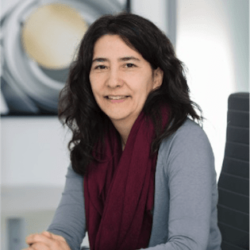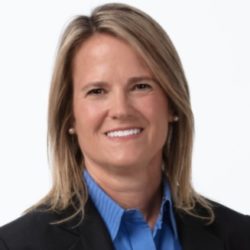

Roz Tsai
VP HR, Enterprise Learning and Chief Learning Officer, Ecolab
Minneapolis, MN
9x Menttium Mentor
A passionate life-long learner and talent developer, Roz is thrilled to lead Ecolab’s enterprise learning strategy, leadership development, career framework, and performance management initiatives. Previously at Ecolab, Roz served as Vice President Global Institutional Training where she led efforts to transform its field sales training strategy and excellence. Before joining Ecolab, Roz had an extensive global career with leadership roles in companies such as Honeywell, Lawson Software (now Infor), and Northern States Power Company (now Xcel Energy). Roz is actively engaged as Adjunct Faculty member at University of St. Thomas, board member for Minnesota non-profit BestPrep, and a trained guide at the Minneapolis Institute of Art. Roz holds a Bachelor of Arts degree from Nankai University in Tianjin, Master of Science from St. Cloud State University, and Ph.D. from University of Minnesota.
How have mentors made a difference in your career?
Two things come to mind – the Menttium mentor that I had when I was at Honeywell was an extremely valuable relationship. He was able to provide me with the strategic insights and practical actions and idea I didn’t have access to at the time. It was a transformative experience, as he turned on several mental switches which allowed me to view things from a different lens.
The second value comes from being able to tap into life experiences, and gain strategic insights outside the walls of my current organization. This has provided me with greater diversity of thought, as well as a sense of developmental safety. Even when a leader has rich internal network, its helpful to gain external insights without causing unneccesary noise within your own organization.
Do you see a benefit to having both female and male mentors?
Yes. When I was first introduced to Menttium as a mentee, I specifically requested to be matched with a male mentor because I was working in a male dominated environment, and wanted to be able to tap into different styles of thinking than my natural approach. In general, my guidance to mentees is always to seek out mentors from different perspectives – whether it is a difference of gender, function, geography, or industry. The point of mentoring is to stretch your thinking.
Why do you dedicate time to mentoring with Menttium?
There are two reasons I prioritize mentoring with Menttium. The first is that I feel a sense of responsibility to help build leaders. Just as we strive to influence within our own organizations, communities and professional fields; so too helping emerging leaders achieve their own breakthroughs helps make organizations and professions more effective in their ability to impact teams and customers – which in turn makes all of the corporate world more effective. And related to this, having benefited myself from such a tremendous transformative experience, I know personally the value of supporting other leaders.
The other reason I continue to mentor with Menttium is that every partnership has made me better. Each partner has stretched my own thinking, has introduced me to other industries that I’ve never worked in, and brought challenges which have helped crystallize my leadership point of view. The level of commitment each mentee has brought to the partnership has been energizing and an inspiration to me to continue to be better. That has been invaluable.

Barb Samardzich
Retired COO, Ford Motor Company
Michigan & South America (dual resident)
13x Menttium Mentor
Barb Samardzich (retired) held various senior leadership positions across her 26 year career with Ford Motor Company. Most recently, she was the vice-‐president and chief operating officer, Ford of Europe from 2013 through 2016. In this role she was responsible for all European manufacturing, product development, purchasing, quality, safety and environmental operations, leading a team of over 30,000 salaried and hourly employees.
Barb has won many awards for her work including 2016 Automotive News Europe “25 Leading Women in the European Auto Industry” and 2011 Automobilwoche “Top 50 Automotive Women”. She holds a Bachelor and Masters degree in Mechanical Engineering as well as a Masters degree in Engineering Management.
How have mentors made a difference in your career?
The reason that I am so willing to be a mentor is because I recognize how important mentors have been in my own career. To be able to learn from a mentor who has been there, done that, to help navigate the political nightmare that exists in organizations is so valuable. You’re able to benefit from their experience and most importantly from their mistakes.
Do you see a benefit to having both female and male mentors?
Mentoring isn’t about gender, it’s about experience, having the right mentor at right point in your career is critical – who can understand the business you’re in, or the decisions you’re wrestling with. I’ve had both men and women mentors, who have been great. What’s more important is their experiential base, and how it matches where you are at the time. You will need different people throughout your career, who have the right skillset at the right time. ‘
Why do you dedicate time to mentoring with Menttium?
All through my time at Ford I’ve mentored people, internally and externally. Last year I semi-retired, however I remain very active on my boards and I still have people asking me to mentor them. Now the focus is on how to find board positions, or how to be a good board member. I began mentoring because I saw it as so important for women to have role models, to be able to see women who had done well in male dominated environments. To be able to see my success in the automotive industry and say to themselves “if she can do it I can do it t”’. It’s also so important to develop talent, to help people reach their career goals and objectives.

Jackie Seto
Principal, Side People
Portland, OR
11x Menttium Mentor
Jackie worked in the semiconductor industry nearly 30 years in various positions ranging from process engineering in a semiconductor manufacturing facility, running marketing and product management for a semi capital equipment company to running new product lines developing equipment for semi manufacturing. In her professional career, she strives to always be learning and to challenge herself to do things she’s have never done before.
In order to be successful at this, she continuously develops the people in her organization to be able to take on new responsibility and to be leaders in the company. In August 2011, she took her most challenging career role running a product division in Villach Austria which was acquired in 2008. There, she was responsible for product development of their next generation products, support of their existing installed base, product management and product operations and the was site manager, responsible for all local functions and government interface.
Since returning to the US in July 2016, she has formed her own leadership and business consulting firm where she works with local non-profits in business development and change management.
How have mentors made a difference in your career?
It’s made a huge difference – I’ve had both mentors and coaches through out my career. I was fortunate that my primary mentor was the eventual President and CEO of the company where I spent 20 years of my career. He taught me how to think about things from an operational focus and financial focus which was especially helpful to me coming from an engineering background. I also learned a lot about leadership – how to lead by example, how to lead with vision, and with the appropriate level of emotion. Without this knowledge, I wouldn’t have had a chance to get to the level that I did. In the end, I was able to run the organization’s business in Austria. Most importantly, my mentor gave me confidence that I knew what I knew. For example, in trying to decide if I should get an executive MBA, my mentor had already done that and he told me that while the organization would support me if I wanted to get it, that I’d likely discover that I already knew everything through my own experiences.
As a mentor, I love drawing out my mentees’ knowledge and building their confidence. I often tell them, “do you realize you just solved this on your own?” I have one memorable example while I was driving to Venice with my family. I got a call from my mentee who told me, “I have this problem and I know you’re going to ask me this question, and my answer would be, and then you’d ask me this…” This went on for close to 30 minutes. At the end of the conversation, I asked her why she felt she had to call me for this confirmation when she knew it all. She said, “I just wanted to make sure I was asking the right questions!” A mentor’s role is to help surface individuals’ existing knowledge.
Do you see a benefit to having both female and male mentors?
It is extremely important to have both male and female mentors. Personally, I’ve never had a female mentoras at the time, there were only five females in my industry that had made it to my level directing technical teams. I’ve had to navigate being a female in a very male world including navigating communication style differences, emotional differences, and personal preferences.
It was especially hard for me when I had children. Everyone was watching to see what was going to happen. I didn’t have anyone to help me through that. My kids are now 13 and 15 and they were the reason I ultimately left the organization to spend more time with them before they go off to college.
Having a male mentor is important because most organizations are run by men and the statistics show that it’s not getting any better. As women in a traditionally male roles, we need to understand the differences in expectations, approach and communication or we may misinterpret situations and have our communications and actions be misinterpreted. This can stifle both our job performance and upward progression.
Why do you dedicate time to mentoring with Menttium?
You guys have always said this, and I can’t echo it enough – in every mentoring experience, I get so much out of it and learn. I get to hone my own skills, but through mentoring, I also realize the knowledge I possess and can apply to my own job. In having to articulate things at a higher level, or find an article or resource, I recall information I’ve forgotten about.
I’ve had the incredible experience with Menttium to get to know women all over the world. I’ve worked with a Dutch woman living in Azerbaijan, a Scottish woman located in Switzerland, a Chinese educated women from Canada who was working in Hong Kong and each brings such interesting cultural experiences and situations. I have purposefully chosen to mentor women because I know it’s hard to find women who have gone through what they are going through.
The issues women have are different from men.

Kathleen Phillips
Principal, KLP Consulting
Minneapolis, MN
12x Menttium Mentor
Kathleen has held global sales and marketing leadership roles in the security, semiconductor and e-commerce industries, from start-ups to multiple billion dollar companies.
At Bluestem Brands as VP of Strategic Partnerships and Programs, she was responsible for cultivating partnerships that drove tens of millions of dollars of EBITDA for multiple corporate brands.
Serving as VP of Global Channel Strategy and Operations for Entrust Datacard, she architected a global channel partner program that resulted in hundreds of millions of dollars of partner revenue annually.
She is an avid learner who has a passion for mentoring. Kathleen has been actively mentoring and coaching for over two decades helping others maximize their professional and personal potential.
How have mentors made a difference in your career?
I’ve been so fortunate to have multiple mentors in my life – my dad taught me how to be resilient, courageous, and how important your integrity is. I developed my thirst for success from him. From my mom, I learned compassion, gratitude and humility.
Early in my career I had a remarkable mentor who helped me release my true passion – helping others discover their strengths and instilling the confidence in them to exceed their wildest dreams. For me to be able to turn around and mentor others is pure magic. I’m so proud of all the mentees I’ve been able to partner with. Seeing them achieve amazing career and personal results is extremely gratifying.
At Entrust Datacard, there was a very talented Sr. Executive who took me under his wing. He would come to my side whenever he saw that I was struggling. What I most appreciated about him was his compassion to provide constructive feedback. While most of us don’t tend to like constructive feedback, that is where the growth lies.
Do you see a benefit to having both female and male mentors?
Yes, my life has been enriched from both male and female mentors. Often times we tend to assume female mentors provide the strongest soft skills coaching, in my case I had wonderful mentoring on soft skills from both. Each one of us is unique – our experiences, our skill sets, how we grew up all combine to make us uniquely individual. The way we ‘show up,’ and how we engage in helping others is a result of our experiences. Each of those mentors, female or male brought a unique perspective that helped guide and shape me.
Why do you dedicate time to mentoring with Menttium?
I have been so fortunate to be part of Menttium for over a decade. I am partnering with my 12th mentee, and from the very first match, my partnerships have been overwhelming enriching, both professional and personally. My first partnership was a local match, and right now I have virtual partnership with a very talented man overseas. I admit I wasn’t’ sure I would like virtual mentoring, but those partnerships have been some of the most fulfilling.
I’ve also really enjoyed mentoring across all kinds of functional areas. Regardless of function, I see the same themes come up again and again – how to navigate their career, how to identify their strengths and passions, how to network and form connections, and focusing on how they show up at work. I feel so proud to be so privileged to be part of their development, to see many of them progress even during the partnership year.

